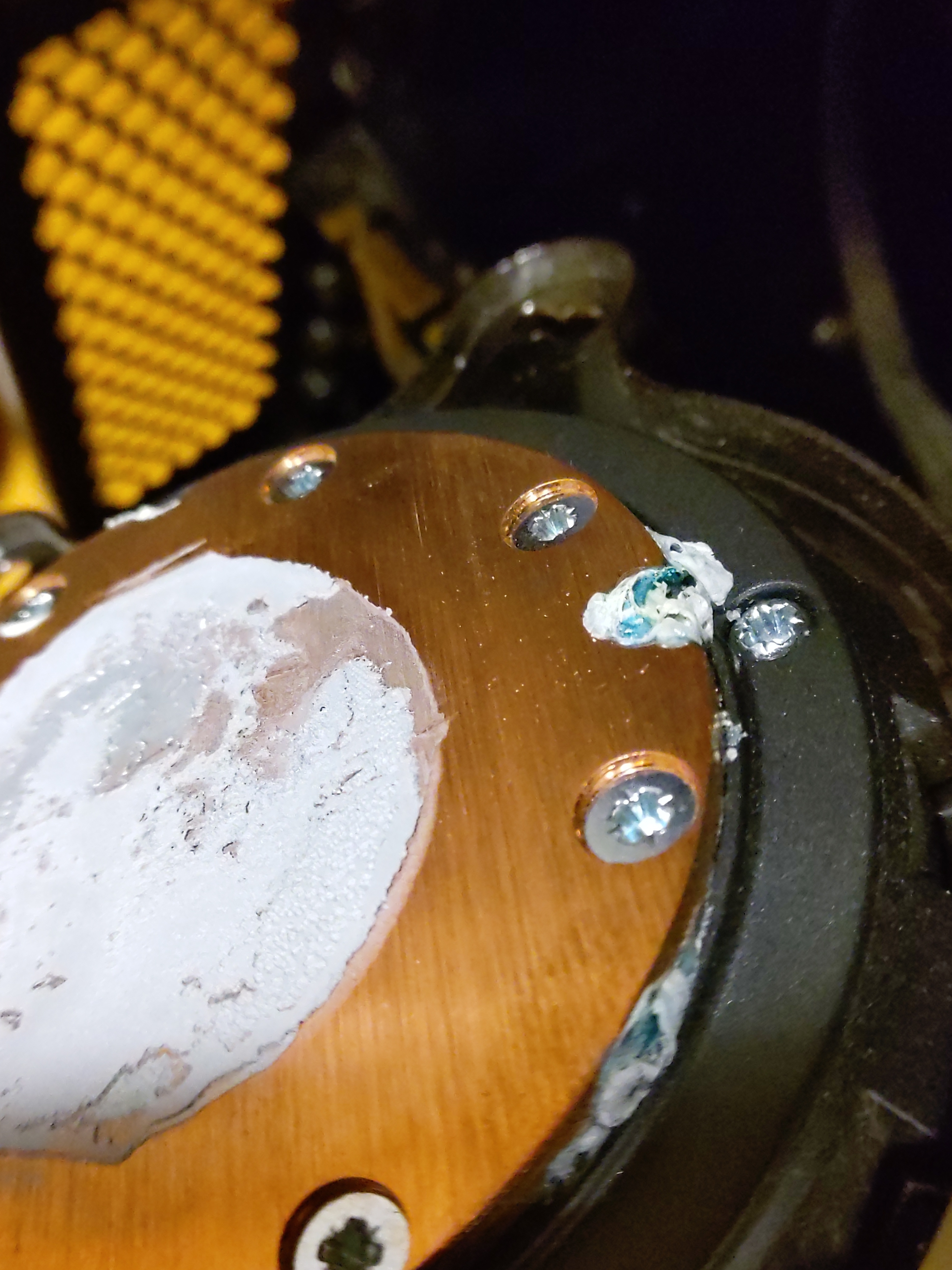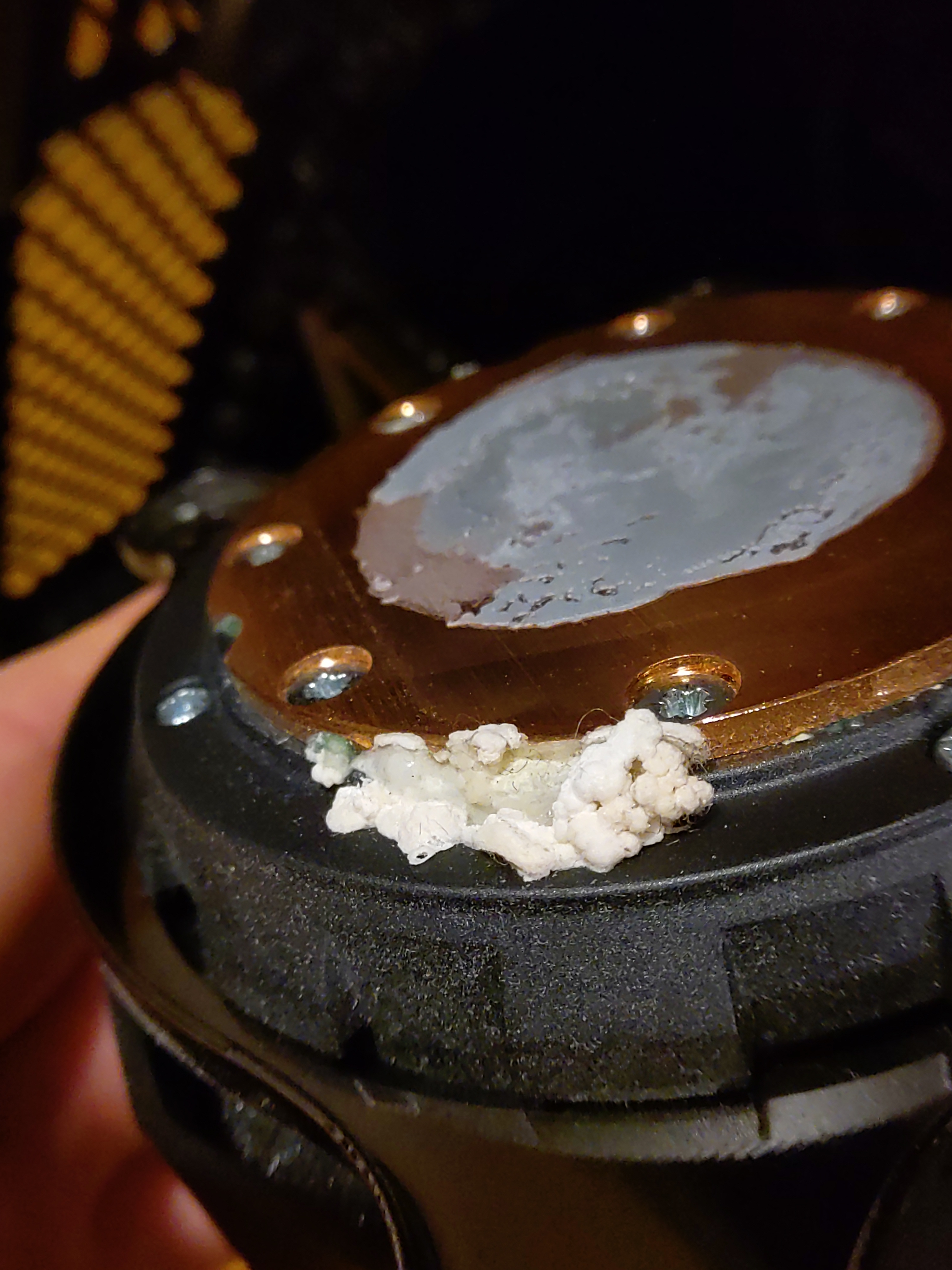this post was submitted on 29 Nov 2024
20 points (100.0% liked)
PC Master Race
15656 readers
11 users here now
A community for PC Master Race.
Rules:
- No bigotry: Including racism, sexism, homophobia, transphobia, or xenophobia. Code of Conduct.
- Be respectful. Everyone should feel welcome here.
- No NSFW content.
- No Ads / Spamming.
- Be thoughtful and helpful: even with ‘stupid’ questions. The world won’t be made better or worse by snarky comments schooling naive newcomers on Lemmy.
Notes:
- PCMR Community Name - Our Response and the Survey
founded 2 years ago
MODERATORS
you are viewing a single comment's thread
view the rest of the comments
view the rest of the comments


Doesn't look like corrosion, since that would likely be a blue/green color from the copper (you can see a little of that oxidation in the third pic), but it probably is a buildup of minerals as the main plate has slowly leaked fluid out the sides.
Should you use it?
It's leaking fluid. Unless you know for a fact it's using some kind of non-conductive fluid, it's a matter of when it leaks onto something more important, not if—probably your GPU, if not your CPU.
Wait, there are nonconductive PC cooling fluids? I need to learn more.
There were some really toxic ones used in early supercomputer days.
Mineral oil is nonconductive. Some people even do aquarium builds with the whole mobo and gpu immersed in mineral oil. I don't think mineral oil is used in loop coolers though.
Yeah I think outside of transformers trying to pump mineral oil without constantly dissolving your o rings would be a nightmare.
I don't know of any, but I don't keep up with the world of liquid cooling. Water is usually the most common, since it is cheap and has reliable performance.
Pure water, by itself, is non conductive IIRC. It only becomes conductive if there is stuff dissolved in it, like with tap water where there are small amounts of minerals in the water.